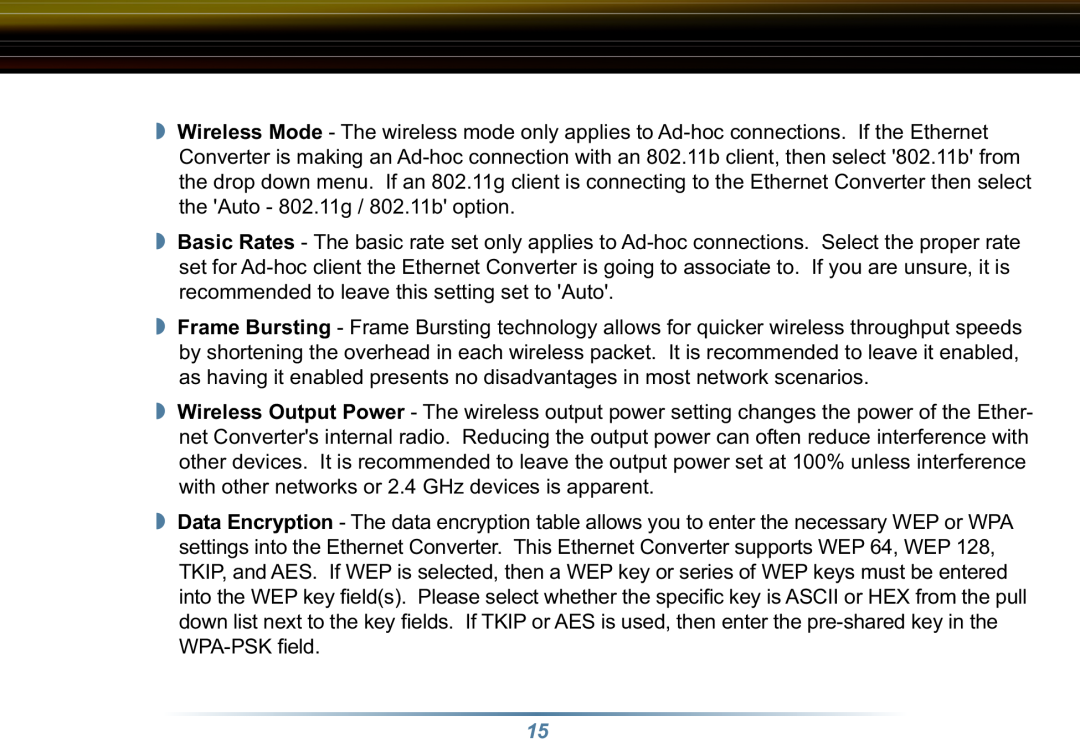
◗Wireless Mode - The wireless mode only applies to
◗Basic Rates - The basic rate set only applies to
◗Frame Bursting - Frame Bursting technology allows for quicker wireless throughput speeds by shortening the overhead in each wireless packet. It is recommended to leave it enabled, as having it enabled presents no disadvantages in most network scenarios.
◗Wireless Output Power - The wireless output power setting changes the power of the Ether- net Converter's internal radio. Reducing the output power can often reduce interference with other devices. It is recommended to leave the output power set at 100% unless interference with other networks or 2.4 GHz devices is apparent.
◗Data Encryption - The data encryption table allows you to enter the necessary WEP or WPA settings into the Ethernet Converter. This Ethernet Converter supports WEP 64, WEP 128, TKIP, and AES. If WEP is selected, then a WEP key or series of WEP keys must be entered into the WEP key field(s). Please select whether the specific key is ASCII or HEX from the pull down list next to the key fields. If TKIP or AES is used, then enter the
15
